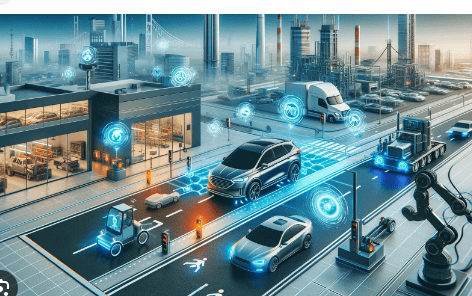Exploring the Intersection of AI and Sustainability

The convergence of artificial intelligence and sustainability presents a compelling area of exploration. AI’s capabilities in data analytics facilitate advancements in agriculture, energy, and waste management. These sectors stand to benefit significantly from enhanced efficiency and reduced environmental impacts. However, the complexities of implementation and potential trade-offs raise critical questions. As these technologies evolve, understanding their implications will be essential for fostering a sustainable future. What challenges lie ahead in this intricate relationship?
AI in Agriculture: Enhancing Crop Production and Resource Management
As the global population continues to rise, the agricultural sector faces the pressing challenge of meeting increasing food demands while minimizing environmental impact.
Precision farming, empowered by data analytics, enables farmers to implement sustainable practices that enhance crop resilience. This technology facilitates informed decision-making, optimizing resource management and reducing waste.
Ultimately, it fosters a more sustainable agricultural landscape that aligns with the aspirations for freedom and environmental stewardship.
Smart Energy Solutions: Optimizing Consumption and Reducing Emissions
How can advanced technologies reshape the energy landscape to promote sustainability?
Smart grid innovations enhance energy efficiency by enabling real-time data analysis and adaptive consumption patterns.
These technologies empower consumers to make informed choices, optimizing energy use while reducing emissions.
Waste Management Innovations: AI-Driven Recycling and Waste Reduction
Innovative approaches to waste management are increasingly leveraging artificial intelligence to enhance recycling processes and minimize waste generation.
Automated sorting technologies streamline the separation of recyclables from landfill-bound materials, optimizing efficiency.
Additionally, AI-driven waste tracking systems provide valuable insights into waste patterns, empowering organizations to implement targeted reduction strategies.
These advancements not only promote sustainability but also foster a culture of responsibility and resourcefulness in waste management.
Climate Change Mitigation: Predictive Analytics and Environmental Monitoring
The integration of artificial intelligence in waste management sets the stage for broader applications in climate change mitigation, particularly through predictive analytics and environmental monitoring.
By employing advanced climate modeling techniques and data visualization tools, AI enables stakeholders to anticipate environmental shifts and allocate resources effectively.
This proactive approach fosters informed decision-making, empowering communities to combat climate change while promoting sustainable practices for future generations.
See also: Bridging the gap between AI
Conclusion
The integration of AI and sustainability is not merely a technological advancement but a crucial strategy for addressing global challenges. For instance, precision agriculture has been shown to increase crop yields by up to 30% while reducing water usage by 20%. Such statistics underscore the profound impact of AI-driven innovations across sectors. As these technologies evolve, they hold the promise of fostering a sustainable future, where economic growth aligns seamlessly with environmental stewardship, enhancing quality of life for all.





